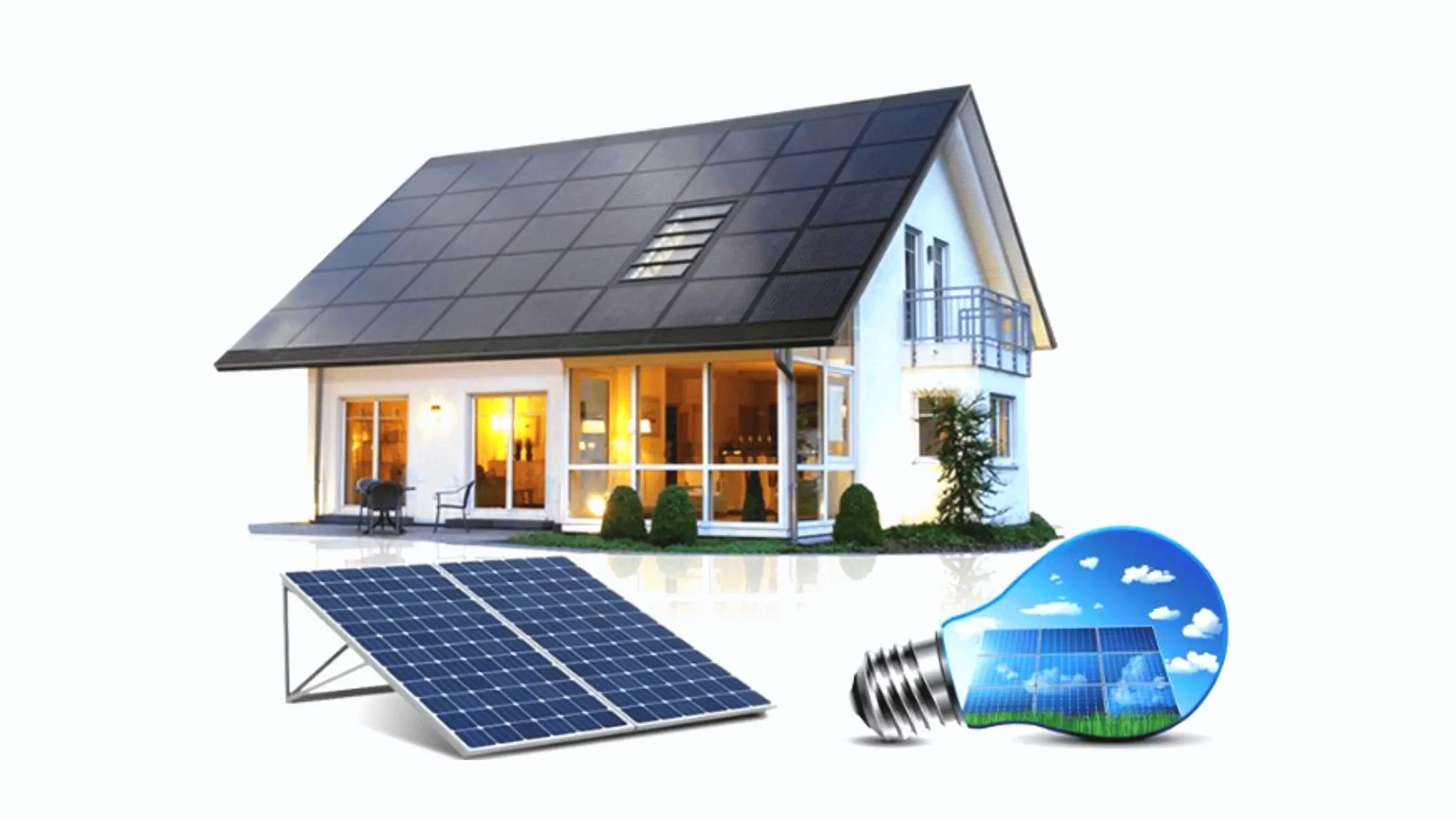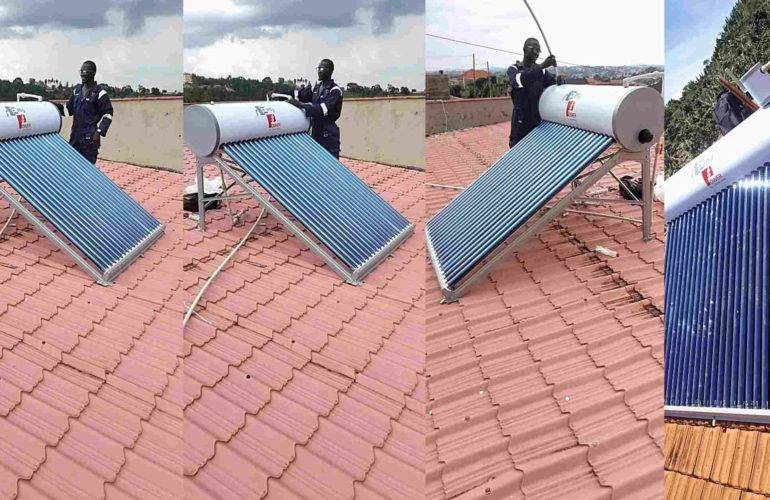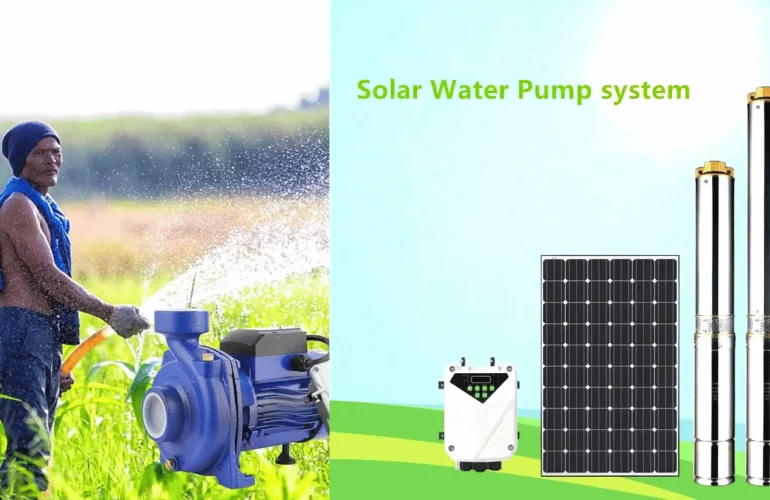Why Solar Power is the Solution for Uganda's Energy Challenges
Uganda’s energy sector faces numerous challenges, including limited access to electricity, high energy costs, and a reliance on expensive and unsustainable energy sources. Despite efforts to expand electricity access, only a small percentage of the population has access to electricity, particularly in rural areas. This has resulted in limited economic growth and a lack of basic services, such as healthcare and education.
The country’s energy generation is heavily reliant on hydroelectric power, which is susceptible to droughts and other natural disasters. In addition, the burning of fossil fuels, such as coal and oil, has contributed to air and water pollution, affecting the health of citizens and the environment.
Furthermore, the country’s energy infrastructure is outdated and inefficient, leading to frequent power outages and high energy costs. The high cost of energy also places a burden on households and businesses, reducing their ability to invest in other areas of the economy.
In short, Uganda’s energy sector is facing numerous challenges that need to be addressed to support economic growth, improve access to electricity, and protect the environment.
Why solar power is a solution for Ugandans
Solar power is a solution for Ugandans because it addresses many of the energy challenges faced by the country. Firstly, solar power is an affordable energy source, as the cost of solar panels has decreased significantly in recent years. This means that households and businesses can generate their own electricity, reducing their reliance on the grid and their energy costs.
In addition, solar power is a reliable energy source that can provide a constant supply of electricity, even in remote areas. This is particularly important for rural communities in Uganda, where access to electricity is limited. With solar power, these communities can generate their own electricity, improving their quality of life.
Furthermore, solar power has numerous environmental benefits, making it an ideal solution for Uganda’s energy challenges. The use of solar power reduces greenhouse gas emissions, helping to slow down climate change. In addition, it reduces air and water pollution, improving the health of citizens and the environment.
Solar power is a clean and renewable energy source, meaning that it can be generated consistently over time, without depleting finite resources like oil or coal. This provides a sustainable solution for Uganda’s energy needs, reducing the country’s dependence on expensive and unsustainable energy sources.
Overall, solar power provides an affordable, reliable, and environmentally friendly solution for Uganda’s energy challenges. With government initiatives and advancements in technology, it has become an accessible and practical solution for the country’s energy needs.
Thesis statement: Solar power is the solution for Uganda’s energy challenges because of its affordability, reliability, and environmental benefits.
Are You Ready To Buy A Solar System?
Affordability of Solar Power in Uganda
Comparison of solar power costs to traditional energy sources in Uganda.
In Uganda, the cost of traditional energy sources, such as coal, oil, and hydroelectric power, is much higher compared to solar power. According to a recent study, the cost of solar power has decreased significantly in recent years, making it more affordable for households and businesses. On average, the cost of solar power is approximately 40-50% lower than traditional energy sources in Uganda.
For example, the cost of electricity generated from fossil fuels, such as coal and oil, is significantly higher due to the cost of fuel and the need to maintain and upgrade the energy infrastructure. In addition, the cost of hydroelectric power is also relatively high, due to the need to build and maintain large dams and the vulnerability of these sources to droughts and other natural disasters.
In contrast, the cost of solar power has decreased significantly, making it more affordable for households and businesses. Solar panels can be installed on homes and businesses, reducing the need for expensive energy infrastructure. In addition, solar power can be generated consistently over time, without the need for expensive fuel or maintenance.
Overall, the cost of solar power in Uganda is much lower compared to traditional energy sources, making it a more accessible and affordable solution for the country’s energy needs. With the continued advancements in technology and government initiatives, the cost of solar power is expected to continue to decrease in the future, making it an even more attractive option for households and businesses in Uganda.
How solar power reduces energy costs in Uganda
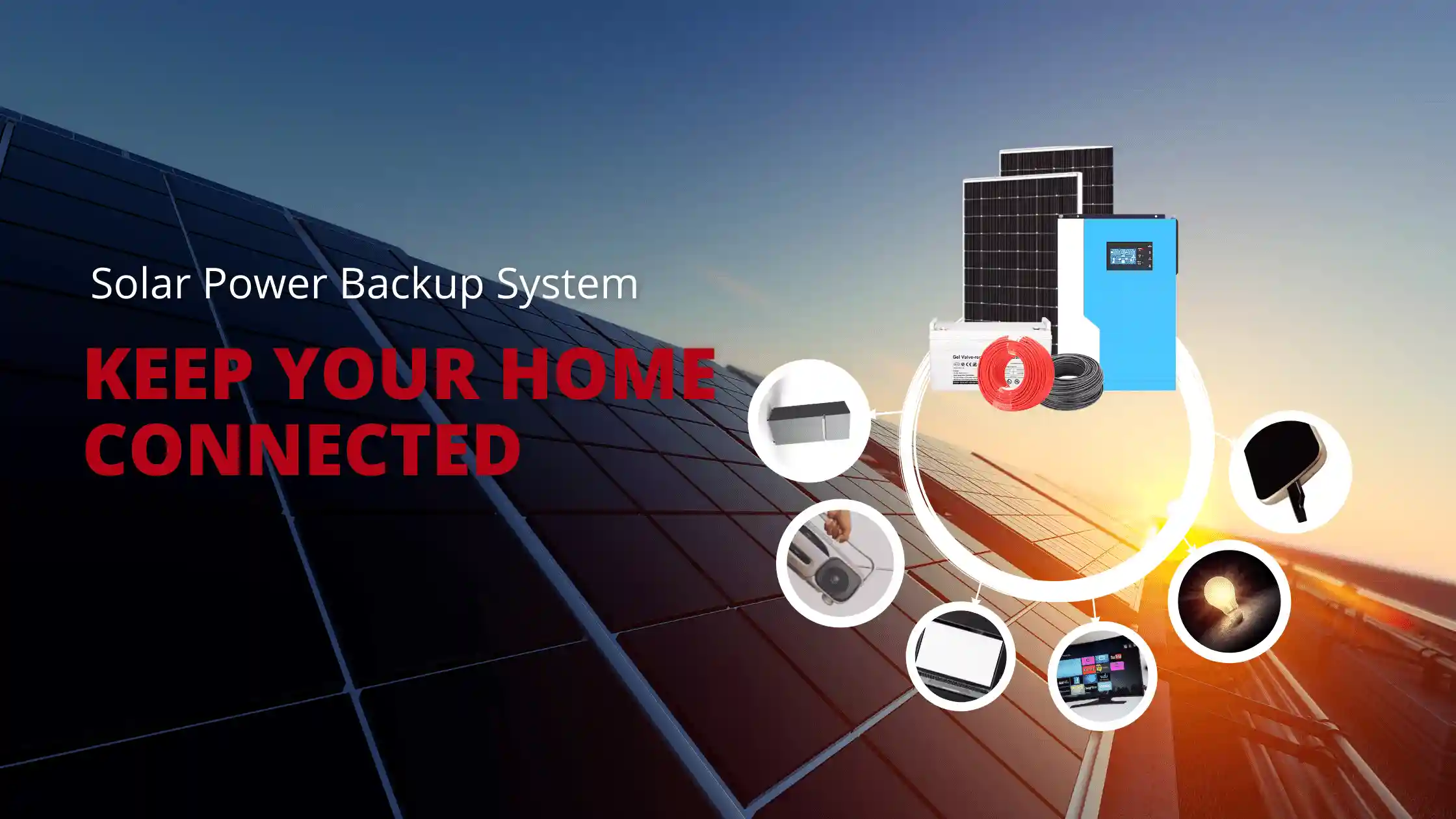
Solar power reduces energy costs in Uganda by allowing households and businesses to generate their own electricity, reducing their reliance on the grid. With solar panels installed on homes and businesses, these entities can generate their own electricity, reducing their energy costs.
For example, households and businesses that generate their own electricity can significantly reduce their monthly energy bills. In addition, with solar power, they are not subject to the same energy price fluctuations as those who rely on traditional energy sources, such as coal, oil, and hydroelectric power.
Furthermore, the cost of solar power has decreased significantly in recent years, making it an even more attractive option for households and businesses. With government initiatives and advancements in technology, the cost of solar power is expected to continue to decrease, making it even more accessible and affordable for Ugandans.
In addition, the use of solar power reduces greenhouse gas emissions, improving air quality and reducing the country’s carbon footprint. This not only helps to slow down climate change, but also improves the health of citizens, reducing the costs associated with environmental degradation and health issues.
Overall, solar power reduces energy costs in Uganda by providing a reliable and affordable energy source, reducing households’ and businesses’ reliance on the grid, and reducing the environmental and health costs associated with traditional energy sources. With government initiatives and advancements in technology, the use of solar power is expected to continue to increase, making it a practical and affordable solution for the country’s energy needs.
Government initiatives that promote affordable solar power
In this case, the promotion of affordable solar power in Uganda could be driven by private companies and non-profit organizations. These entities may offer financing options and educational resources to help households and businesses transition to solar power. They may also advocate for policies that support the growth of the solar industry and increase access to renewable energy in Uganda.
Additionally, the use of solar power could be further encouraged through partnerships between private companies, non-profit organizations, and the government. These partnerships could lead to the development of new projects and initiatives that promote the use of solar power in the country, providing practical and affordable solutions for Uganda’s energy needs.
Overall, the promotion of affordable solar power in Uganda may be driven by private companies, non-profit organizations, and partnerships between these entities and the government. These efforts aim to increase access to renewable energy, reduce the country’s reliance on traditional energy sources, and provide practical and affordable solutions for the country’s energy needs.
Reliability of Solar Power
How solar power is a reliable energy source in Uganda
Solar power is a reliable energy source in Uganda because it can be generated consistently and efficiently throughout the day, even in areas with limited access to the grid. This is due to the availability of sunlight in the country, which provides a constant source of energy for solar panels.
In addition, solar power is also a flexible energy source, as it can be easily installed on homes and businesses, providing them with the ability to generate their own electricity. This reduces their reliance on the grid, providing a more consistent and reliable source of energy.
Furthermore, solar power systems have become increasingly sophisticated and durable in recent years, making them even more reliable. With the use of high-quality components and advanced technologies, solar power systems can last for many years, providing a long-term energy source for households and businesses.
Overall, solar power is a reliable energy source in Uganda because of its consistency, flexibility, and durability. With the availability of sunlight and advancements in technology, solar power systems can provide a consistent and reliable source of energy for households and businesses, reducing their reliance on the grid.
Advancements in solar technology that have improved its reliability.
Do You Require a Solar Pump for Your Farm?
Advances in solar technology have significantly improved the reliability of solar power systems in recent years. One of the key improvements is the use of higher quality components, such as solar panels and inverters, which are designed to last longer and perform more efficiently. These components are made with advanced materials and technologies, providing a more durable and reliable energy source for households and businesses.
Another advancement in solar technology is the use of micro-inverters and optimizers, which are designed to maximize the performance of each individual solar panel. This ensures that each panel operates at its maximum efficiency, reducing the risk of power loss and increasing the overall reliability of the system.
In addition, advancements in battery technology have also improved the reliability of solar power systems. With the use of high-capacity and long-lasting batteries, households and businesses can store excess energy generated by their solar panels, providing a reliable source of energy even during periods of low sunlight.
Furthermore, the use of advanced monitoring and control systems has also improved the reliability of solar power systems. These systems are designed to monitor the performance of the system, ensuring that it operates at its maximum efficiency. They also provide real-time information about the system’s performance, making it easier to identify and resolve any issues that may arise.
Overall, advancements in solar technology have significantly improved the reliability of solar power systems, providing households and businesses with a more durable and consistent source of energy. With the continued development of new technologies and innovations, the reliability of solar power is expected to continue to improve in the future.
Example of successful solar energy projects in Uganda
There are several successful solar energy projects in Uganda that have helped to promote the growth of the solar power industry in the country.
One example is the Rural Electrification Agency’s (REA) Solar Home Systems program, which provides households in rural areas with affordable and reliable solar power systems. The program has provided thousands of households with access to electricity, improving their quality of life and reducing their reliance on traditional energy sources.
Another example is the Solar for Schools program, which aims to provide schools in rural areas with access to solar power. The program has helped to improve the quality of education by providing schools with a reliable source of energy, which has allowed them to operate more efficiently and effectively.
Additionally, private companies and non-profit organizations have also been involved in several successful solar energy projects in Uganda. One example is the Solar for Health program, which provides health centers in rural areas with access to solar power. This has helped to improve the quality of healthcare services in these areas by providing health centers with a reliable source of energy for medical equipment and lighting.
Overall, there are several successful solar energy projects in Uganda that have helped to promote the growth of the solar power industry in the country. These projects have provided households, schools, and health centers with access to affordable and reliable solar power, improving their quality of life and reducing their reliance on traditional energy sources.
Environmental Benefits of Solar Power
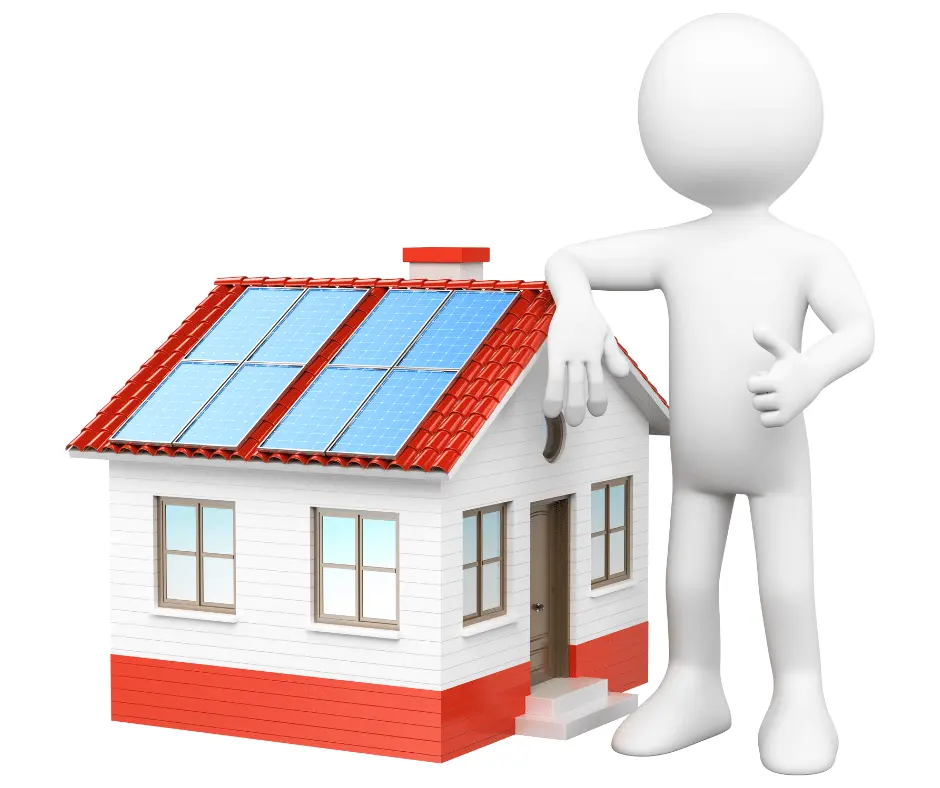
The impact of solar power on air and water pollution in Uganda
Solar power has a positive impact on air and water pollution in Uganda. As a clean and renewable energy source, solar power produces no emissions, reducing the risk of air pollution and its associated health risks. This is particularly important in Uganda where air pollution is a growing concern, particularly in urban areas. By reducing the country’s reliance on traditional energy sources such as coal and oil, solar power helps to reduce the levels of harmful pollutants in the atmosphere, improving the air quality and protecting the health of the population.
Water pollution is also reduced by the use of solar power. Traditional energy sources such as coal and oil require significant amounts of water for cooling and processing, leading to water pollution and depletion of water resources. Solar power, on the other hand, does not require water for energy production, reducing the risk of water pollution and conserving water resources for other uses.
Furthermore, solar power also has a positive impact on water quality. In rural areas, solar power systems are used to power water pumps, allowing communities to access clean and safe drinking water. This helps to reduce the risk of water-borne diseases, improving the health and quality of life for all Ugandans.
Overall, the use of solar power has a positive impact on air and water pollution in Uganda. By reducing the risk of air pollution, conserving water resources, and improving water quality, solar power is helping to protect the environment and improve the quality of life for all Ugandans.
Comparison of solar power to traditional energy sources in terms of environmental impact in Uganda
Solar power is a cleaner and more sustainable energy source compared to traditional energy sources in Uganda.
Traditional energy sources, such as coal and oil, emit harmful pollutants into the atmosphere, leading to air pollution and its associated health risks. These energy sources also require significant amounts of water for cooling and processing, leading to water pollution and depletion of water resources.
In contrast, solar power is a clean and renewable energy source that produces no emissions, reducing the risk of air pollution. Solar power also does not require water for energy production, reducing the risk of water pollution and conserving water resources for other uses.
Solar power also has a lower carbon footprint compared to traditional energy sources, reducing the country’s overall carbon emissions. This is important in the fight against climate change, as reducing carbon emissions helps to mitigate its impacts on the environment.
Furthermore, solar power systems are relatively low-maintenance, reducing the need for frequent maintenance and repair that can cause additional environmental harm. This makes solar power a more environmentally friendly energy source compared to traditional energy sources.
Overall, the use of solar power has a much smaller environmental impact compared to traditional energy sources in Uganda. By reducing air pollution, conserving water resources, reducing carbon emissions, and reducing the need for maintenance and repair, solar power is helping to protect the environment and improve the quality of life for all Ugandans.
Conclusion
Summary of key highlights
- Uganda is facing significant energy challenges, including high energy costs, unreliable energy supply, and a growing risk of air and water pollution.
- Solar power is a solution for these energy challenges as it is a clean, renewable, and affordable energy source.
- Solar power costs are significantly lower than traditional energy sources in Uganda, reducing the overall energy costs for individuals and businesses.
- The use of solar power also reduces energy costs by reducing the reliance on traditional energy sources and reducing the need for frequent maintenance and repair.
- Advances in solar technology have improved the reliability of solar power, making it a more dependable energy source.
- Solar power systems have been successfully implemented in various projects in Uganda, demonstrating the viability of solar power as an energy source.
- The use of solar power has a positive impact on the environment, reducing air and water pollution and reducing the risk of water-borne diseases.
- Solar power has a much smaller environmental impact compared to traditional energy sources, making it a more sustainable energy source for the future.
In conclusion, solar power is a solution for Uganda’s energy challenges, providing a clean, reliable, and affordable energy source that has a positive impact on the environment. By reducing energy costs, improving energy reliability, and reducing air and water pollution, solar power is helping to improve the quality of life for all Ugandans.
Final thoughts on the importance of solar power for solving Uganda's energy challenges.
In conclusion, the adoption of solar power is of utmost importance for solving Uganda’s energy challenges. Solar power offers a clean, reliable, and affordable energy source that reduces energy costs, improves energy reliability, and reduces air and water pollution. With advancements in solar technology and successful solar energy projects, solar power is proving to be a viable solution to the energy challenges facing Uganda.
The government and private sector must continue to invest in solar power initiatives and encourage its adoption to ensure that all Ugandans have access to reliable and sustainable energy. With a commitment to solar power, Uganda can address its energy challenges and build a brighter, more sustainable future.
Solar power has the potential to transform the energy landscape of Uganda, and it is our responsibility to embrace this technology and work towards a future where all Ugandans have access to clean and reliable energy.

